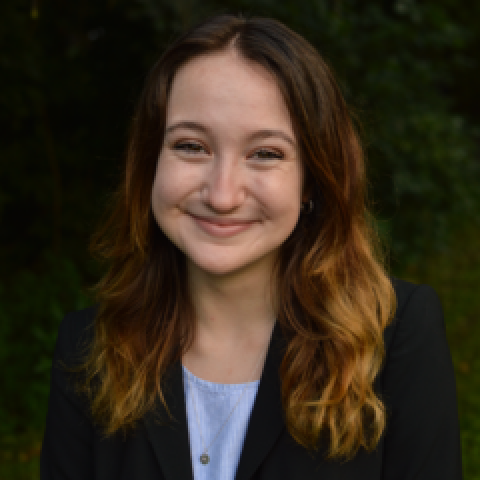

My name is Miriam and I’m a graduate student in the Master of Public Health program here at UVA, which I’ll be finishing up in May. That means pretty soon I’ll be a double Hoo, because I also did my undergraduate degree here in medical anthropology. I chose these programs because I am passionate about health education and prevention science, and it is important to understand what factors influence people’s lives and the choices that they have available to them. For my thesis (which is formally called an Independent Learning Experience), I completed a qualitative research project that investigates maternal healthcare decision-making processes. I hope to someday integrate these interests into clinical practice, which is why I am on the pre-medical track. I decided to pursue a career as a physician because I want to have the most in-depth knowledge of health possible in order to work with patients to prevent disease and improve their wellbeing, and I see myself pursuing a specialty in pediatrics to address the health challenges faced by children, who comprise one of the most vulnerable populations.
I would encourage underclassmen to get involved with things that you care about and you genuinely enjoy. Otherwise you will burn out much more easily, and, looking back, you might feel dismayed or bitter that you dedicated so much of your life to things you weren’t passionate about and missed out on having more fun. This applies to everything from choosing your major to deciding how you are going to get all of your clinical hours. If you are a first year, you might not have much of a choice in what classes you can take or where you get placed for Madison House volunteering, but stick with it, because later you will have more options, and there are benefits that come with seniority and experience. Later on, your pre-health journey will get more difficult, and it is most important to have secured a position you like by that point so that you can stay motivated.
The biggest lesson I learned at UVA was to pivot and be resilient. I think that this goes along with sticking with things even if they aren’t your first choice. College is competitive. You may fail a test or be rejected from your major, and it may feel like your life is over, but it’s really not! You would be amazed to learn just how many pitfalls you are able to recover from. When life doesn’t go your way, it is important to have an open mind and be willing to pivot into an alternative path. That isn’t to say that you always have to be positive– it’s also super important to allow yourself to feel your feelings and validate them, but there are always other options out there. This leads me to my next piece of advice: always have a plan B or even a plan C. There are so many things about life and more specifically pre-health that are out of your control, and you are better off coming up with contingency plans. If I could have done anything differently, I would have come up with more plan Bs and plan Cs so that I wasn’t left scrambling when things didn’t work out.
Lastly, I would encourage you to find people who make you feel good about yourself. You never want to be in a position where you are ashamed to talk about struggling in a class or worrying about how many clinical hours you have. A good friend will not make you feel stupid or rub their successes in your face when you are having a hard time. Not everybody is competitive. Everyone has doubts. I think that a problem at UVA is that too few people voice these doubts or divulge details about their pre-health journey that could help them relate to and learn from others. Talk about things, because once you open up, others will too, and you can help each other. The people around you aren’t out to get you, and neither is life. Things may be hard, but nothing is impossible, and everything works out one way or another, because the only way out is through, and you will get through this.
Written by Miriam Mindel, '22 & '23
